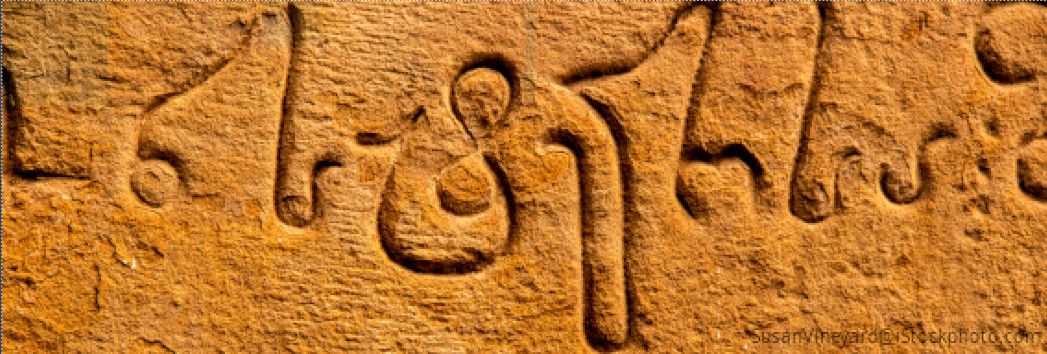Did you ever try to learn Georgian words like განხორციელდება, ვფცქვნი or მწვრთნელი and you had no idea exactly how to memorize them? Well, here is how:
Let's be honest - learning and memorizing vocabulary in Georgian can be quite tough for the Western student. With Georgian not being close to any of the languages outside of the Caucasus Region and its strange (and beautiful!) alphabet, there are quite a few obstacles to overcome when studying Georgian. The strategies, habits and suggestions given below are from my own and very personal experiences during the last 15+ years learning Georgian. They worked and keep working for me and I suggest you see if there is something in it for you, one or two new ways helping you to grasp new Georgian words and to remember them again after some time. That would be great!
Here are five proven methods which help to learn and memorize Georgian words:
- Method No. 1 - Use the Georgian Alphabet!
- Method No. 2 - Listen and Pronounce carefully!
- Method No. 3 - Repeat, Repeat, Repeat!
- Expose yourself to Georgian
- Spaced Repetition // Index-Card Method
- Memorization by Repetition
- Method No. 4 - Build Bridges!
- The Letters ლ and ჰ
- The Word განხორციელდება
- Unlearnable Words: ვფცქვნი, მწვრთნელი
- Method No. 5 - Be patient, Breathe and Have Fun!
Method No. 1 - Use the Georgian Alphabet!
When learning a language with a completely new set of letters, as it is in Georgian, learning these letters at the very beginning should be the logical and indisputable first step, right? I fully agree with this and I emphasize this here because some introductory books on Georgian use a transliteration of of Georgian using the Latin alphabet, e.g. ქართული transliterated as qartuli and have the novice student learn qartuli means Georgian. Only a couple of chapters into the book do they introduce the Georgian letters. I think this is wasted time and promote vigorously to learn the Georgian letters first and then go from there. You can even use Method 3 described below to make this step easier.
The Georgian alphabet might look somewhat daunting at first but in the end, most of the letters can be learned very easily, e.g. the letter ა is just the vocal a in Georgian, the letter მ is the consonant m ... and this is similar with 80% of the letters. Others need more care and method in learning, see Method 2 for examples.
There are great resources out there on how to learn and write the Georgian letters. We do not need to cover this here. Write your index cards with the Georgian letter on front side and a description of its sound, the appropriate letter in English etc. on the back side. Then learn them one by one. That's it.
Method No. 2 - Listen and Pronounce carefully!
Aside from looking unfamiliar to the foreign learner, the Georgian alphabet has a unique advantage over other alphabets, say in English or German. It is that ALL Georgian words are spoken exactly as they are written and if you hear someone speaking a word, you can almost certainly write it in correct orthography, given you understood all syllables right. That is such a help for the learner and I sometimes celebrate in silence when I think about it. What a gift! Just think about all these rules and exceptions to pronouncing words correctly in English or German, e.g. combinations of letters like sh, sch and ch are pronounced differently, depending on where they are in the word and which vocals come before and after it, say in charge and cache, for example. None of this in Georgian! You see a word, you know exactly how to pronounce it. Yes!
This gift comes with a responsibility, however. You must strive to be precise and disciplined with your pronunciation as well. Slurring the words or lumping together all k-like letters, like კ, ქ and ყ into one sound will make life tough for you, when speaking to Georgians (and for them as well). This is not an easy task because our foreigners' ears are just not used to distinguishing certain sounds and, for example, the two words კარი and ქარი both kind of sound like 'kari' to us foreign learners. Be disciplined and make that little break behind the კ when speaking it. Be careful and consult audio examples on the internet on how to pronounce and distinguish between the following similar letters/sounds: კ-ვ, კ-ქ, პ-ფ, წ-ც ჩ-ჭ, ტ-თ, ზ-ს, ზ-ძ, ჯ-ჟ-შ, ღ-რ.
The pronunciation of ყ needs special care and practice. It is a special sound coming from inside your throat. Practice this a lot. A good sentence for doing that is: ბაყაყი წყალში ყიყინებს - the frog is croaking in the water.
Method No. 3 - Repeat, Repeat, Repeat!
...
